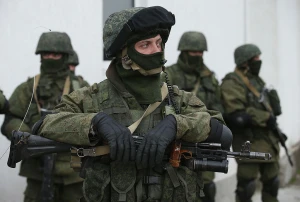
Russia pull out from grain deal, UN responds
On July 17, the Kremlin’s spokesman Dmitry Peskov announced the termination of the Black Sea grain deal that provides for the safe export of Ukrainian grain
It is reported by TASS.
"In fact, the Black Sea agreements have been terminated today. As the President of the Russian Federation said earlier, the deadline is July 17. Unfortunately, the part concerning Russia in this Black Sea agreement has not been fulfilled so far. Therefore, it is terminated," Peskov said.
He emphasized that Russia is ready to return to the agreement if its terms are fulfilled.
"The 'grain deal' has stopped. As soon as the Russian part is fulfilled, the Russian side will immediately return to the implementation of this agreement," Peskov said.
He added that Russia's withdrawal from the deal is not related to the explosions on the Crimean bridge.
UN response
According to a UN spokesperson, the UN office in Istanbul received a written notice from Russia that it was suspending its participation in the grain deal.
"The Secretary-General will not stop his efforts to facilitate the unimpeded access to global markets for food products and fertilizers from both Ukraine and the Russian Federation to preserve global food security," CNN quotes the UN representative.
What is known about the grain deal
The agreement, known as the Black Sea Grain Initiative, was concluded between Russia and Ukraine with the mediation of the UN and Turkey in July 2022 in Istanbul. It has since been extended several times.
In January, the Ministry of Infrastructure said that as a result of Russian actions in the Bosphorus, the world loses millions of tons of Ukrainian food every month. The occupiers are hampering the inspection of ships that export grain to third world countries.
In March 2023, the Russian Federation informed the parties that the agreement would be extended for only 60 days instead of 120. These agreements were due to expire on May 18.
To extend it, the Russians demanded:
-
reconnecting Rosselkhozbank to SWIFT
-
resumption of supply of agricultural machinery, spare parts and service
-
lifting restrictions on insurance and reinsurance plus lifting the ban on access to ports
-
resumption of the Togliatti-Odesa ammonia pipeline
-
unblocking foreign assets and accounts of Russian companies related to the production and transportation of food and fertilizers.
On May 17, the grain deal was extended for 60 days. The Russians' demands were not met.
Doubts about the continuation of the grain deal were also voiced in the UK on July 4.
On June 5, the Russian Federation said it saw no prospects for extending the agreement in July, and on June 22, the Ukrainian Foreign Ministry said it did not see the Russians' readiness to continue the grain initiative.
On June 23, Ukraine announced it would participate in the construction of a grain terminal in Nigeria.
On July 5, the UN announced its readiness to send a representative to Moscow to "save the grain deal."
Turkish President Recep Tayyip Erdogan said on July 8 that his country is working on extending the grain deal for two years.
UN Secretary-General Antonio Guterres has offered Russian President Putin to extend the grain deal in exchange for reconnecting Rosselkhozbank to SWIFT. The Kremlin had demanded this earlier
On July 12, Turkey’s Erdogan said that he had received proposals from Putin to extend the grain deal.
Ukraine is looking for alternative ways to supply grain to Africa, Europe and Asia.
On July 13, Putin said Russia will extend the grain deal when its demands are met.
- News














































